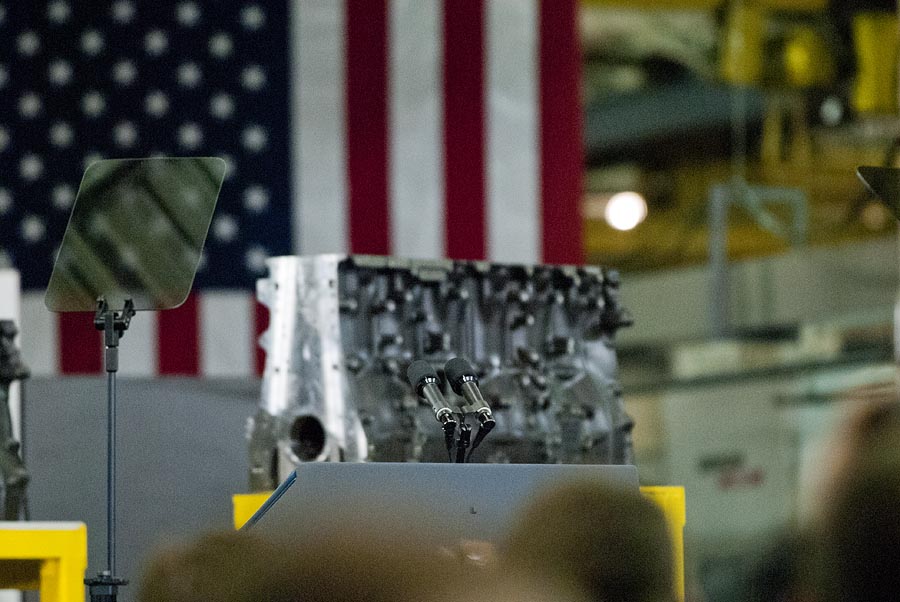Photo by Max Cooper
After President Barack Obama’s visit earlier this week, to talk manufacturing and the middle class, an inevitable outpouring of attention from the national media followed.
“The manufacturing turnaround that happened in Asheville is something that President Barack Obama wants to spur in more communities,” Reuters crowed. The New York Times grounded its compliments firmly in its own narrow provincialism, tagging us as “a picturesque town of bookshops and bed-and-breakfasts in the shadow of the Blue Ridge.” The Associated Press asserted that “the Linamar plant has become a symbol of local economic resurgence.”
Fine. Great. Our city has a lot of wonderful achievements, and it’s always good to see them get attention. I doubt anyone opposes well-paying jobs coming here (though the incentives involved are a matter of some debate).
But I’ve been a journalist in this town for seven years, and here’s what never, ever gets mentioned in this sort of story:
The average wage in this county is $97 a week below the state average (or almost $400 a month lower, if you prefer). Housing costs are sky-high: 44 percent of the population can’t afford a fair-rate unit. The metro area is sixth in the country in credit card debt and our economy, despite Linamar, lost 400 manufacturing jobs last year.
And that’s before we get into aging infrastructure, poor housing conditions, lingering segregation and anemic voter turnout.
Picturesque? Sure, the city’s beautiful. But next time Reuters or the AP (or the president, even) come through, they should take Miya Bailey’s suggestion and visit Hillcrest or Pisgah View — just for some balance — before they decide we’re a model.
I’ve harped on these issues before. I revisit them because they aren’t going away, and because they’re an equally important part of Asheville’s story.
It’s natural that a growing city with a burning desire to make its mark craves attention from the rest of the country; I crack a smile myself when I see “Asheville” in a headline for the right reasons.
But these stories matter: the ones we tell ourselves, the ones we’re afraid to tell, and the ones the wider world tells about us. A metropolitan narrative crammed with nothing but glory is false and stifling. All the positive press in the world will not make our city’s very real dark side vanish.
Today’s problems, ignored, are tomorrow’s catastrophes. My hope is that Asheville proves as innovative in tackling these issues as it has in food, culture, and reviving neighborhoods.
My fear is that it won’t, and one day the city so many of us love will only make news as a cautionary tale.




You’ve been here for 7 years and you haven’t figured out Asheville is mostly filled a bunch of posers?